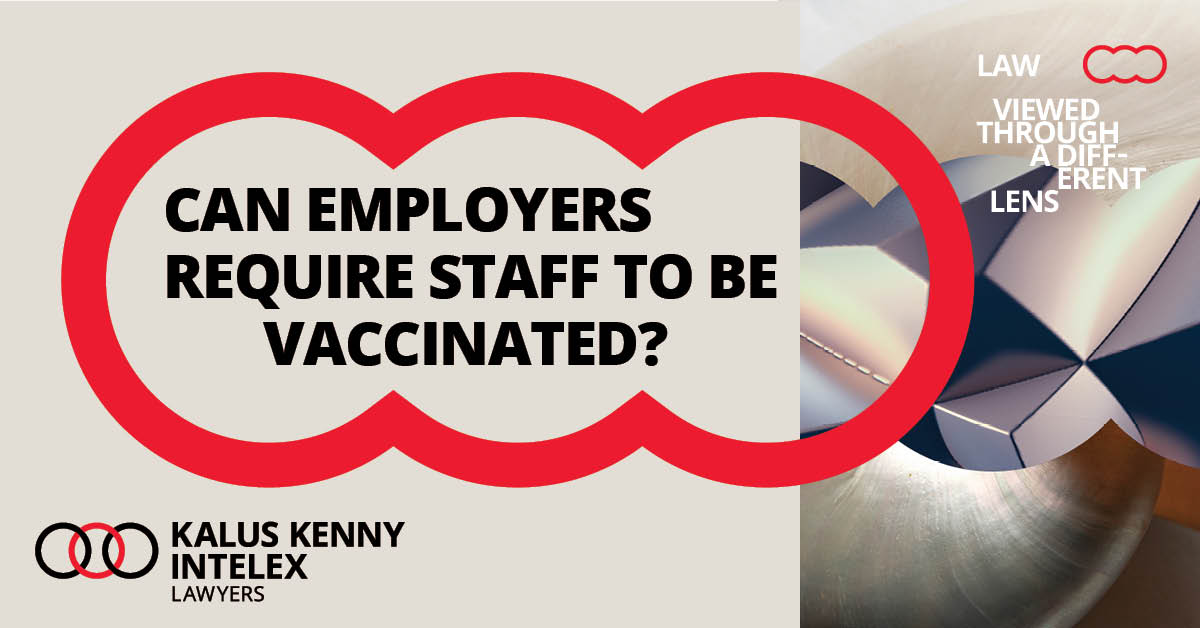Earlier this month in an Australian first, Shepparton food processor SPC mandated that all staff and visitors to its processing plant must be vaccinated for COVID -19 by the end of November 2021. Having implemented strict COVID-safe procedures since the start of the pandemic, SPC has determined this to be a reasonable and necessary step to protect its employees, communities and customers from COVID-19 in an industry that is classified an essential service.
The requirement applies to all 450 employees, including office based workers, as many interface with the production plant on a regular basis. To facilitate the vaccination process, SPC will grant its employees special paid leave to receive the vaccine and 2 days leave to recover from any side effects of the vaccine.
SPC is the first employer to implement such a policy and its initiative may serve as an interesting test case.
Qantas Group have since made it mandatory for all of its 22,000 workers to be fully vaccinated against COVID-19, with frontline workers (including cabin crew, pilots and airport workers) having until November 15 2021 to get vaccinated and remaining employees until March 31 2022. There will be exemptions for those who are unable to be vaccinated for documented medical reasons.
Victoria is yet to mandate vaccines in workplaces, although other states have issued vaccine directions.
Internationally, a number of companies already require their employees to be vaccinated, including Google, Facebook, Ford and Goldman Sachs.
Current guidelines in Australia
Model Work Health and Safety laws, including the Work Health and Safety Act 2011 (Cth) and Occupational Health and Safety Act 2004 (Vic), require employers to provide and maintain a work environment that is without risk to health and safety or to minimise risks as far as reasonably practicable.
The Fair Work Ombudsman has released updated information for employers in relation to vaccinations. Whether a requirement that employees be vaccinated will be considered reasonable will be measured against four tiers.
Tier 1: applies to employees interacting with people who are at high risk of carrying the virus, for example hotel quarantine workers.
Tier 2: applies to employees who are in close contact with people who are vulnerable to COVID-19, such as those working in aged care.
Tier 3: applies to workers in public facing roles.
Tier 4: applies where employees have (or can have) minimal face to face interaction in their employment duties.
Further details of the statement by the Fair Work Ombudsman can be accessed here: https://coronavirus.fairwork.gov.au/coronavirus-and-australian-workplace-laws/covid-19-vaccinations-and-the-workplace/covid-19-vaccinations-workplace-rights-and-obligations
Just as an employer may have employees under different Awards, a workplace could have a mix of employees who fall within different tiers.
In determining whether a direction that employees be vaccinated is lawful and reasonable, other factors will also be considered, such as:
- the nature of the workplace (for example, the extent of public facing roles)
- the degree of community transmission; and
- individual employee circumstances.
Employers can support their workers including by providing leave for employees to be vaccinated and otherwise maintaining a COVID safe workplace for employees who have not yet been able to be vaccinated, who are unable or who refuse to be vaccinated.
What should you do?
Whether it is reasonable to direct employees to be vaccinated will vary depending on individual circumstances and should be considered on a case by case basis.
Employers considering mandating vaccines should engage with staff and unions and obtain legal advice prior to issuing a direction to employees.
Employers should also consider employees who cannot be vaccinated due to underlying health conditions or who refuse on religious or other grounds.
General protections provisions under the Fair Work Act and anti-discrimination laws continue to apply to protect employees.
If you require advice on your obligations as an employer, our employment law team is available to assist.



